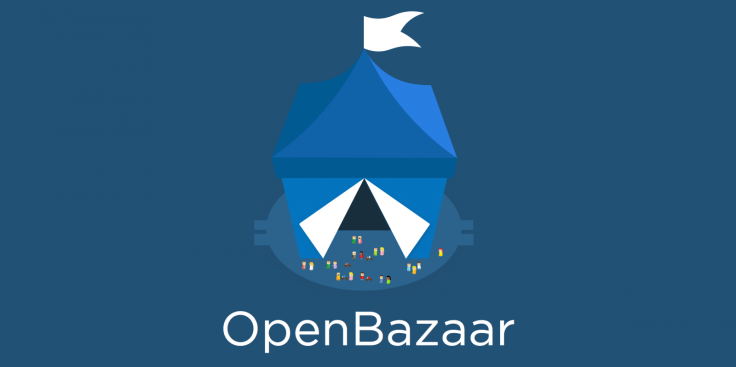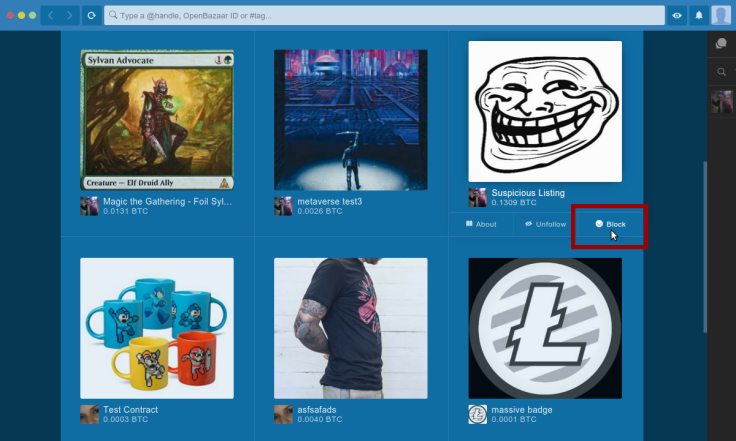OpenBazaar adds BCH, Zcash and looks towards tokens
OpenBazaar CEO Brian Hoffman said a token event is being planned for around the end of March.

Decentralised marketplace OpenBazaar is implementing the first phases of its 2018 roadmap, starting with integrating some new coins for purchasing goods. High fees for using Bitcoin simply became prohibitive and after a lot of feedback OpenBazaar CEO Brian Hoffman decided to introduce Bitcoin Cash, Zcash and Litecoin.
Perhaps unsurprisingly, Hoffman received some stick from Bitcoin maximalists over the choice to integrate Bitcoin Cash.
He said: "I think the issue people have with Bitcoin Cash is the way they promote it as replacing Bitcoin as the true Bitcoin and not as a competitor.
"I don't personally like that approach as it's purposely combative, when the two projects could co-exist peacefully in my opinion."
Enough said. Regarding Zcash, Hoffman added: "Zcash is a great option for OB users sensitive to privacy and dovetails with our goal of giving users the ability to conduct trade privately and securely.
"It's similar to encryption; it won't make governments or law enforcement happy but our concern is protecting users not enabling those groups to snoop on user activity."
The Litecoin integration is being worked through, and looking far ahead there's always the allure of Lightning, Bitcoin's superfast payments overlay system. Regarding this Hoffman said: "Lightning is early and really only supports basic transactions and not the more complex multisig ones we need to do escrow for OB."
OpenBazaar, which went live towards the end of 2015, is an iconic piece of crypto infrastructure. It's worth remembering that originally eBay was envisaged as this perfect marketplace where people would balance prices between one another. But this notion became distorted when lots of investors piled in, the company went public and so on.
Retaining the purity of a vision is commendable, but decentralised systems come with a host of challenges you don't have to think about in a centralised network. A lot of this comes down to incentivising people to behave in a desired fashion, and this can be achieved through issuing tokens or via reputation systems.
Hoffman said OpenBazaar has invested some money in a project called Trust is Risk which involves creating a trust network among users who act rather like friends on Facebook, for example, implementing lines of credit between one another. It's an approach that tries to emulate the way centralised networks create trust within the context of cryptocurrency.

Another approach is to issue a token. Hoffman believes this is probably the most pragmatic solution to problems related to discovery; decentralised systems don't have search engines to organise everything the way centralised businesses do. As such, a token would incentive users to curate certain content and generate a system for promoting adverts and so on, and ultimately drive people to build on the platform.
Hoffman said: "We are not doing a token because tokens are interesting; we are doing a token because we are starting to evolve to the point where we think that it's something that could help solve a big problem that we have.
"You have this massive amount of content that people are just dumping onto the decentralised web or into OB, and there's no Google there to clean it up and serve it up nicely and organise it.
"You can find ways to incentivise people to do that stuff for you; they are not going to do it altruistically, there has to be something in their favour. I think our first step is to look at how a token could allow merchants and advertisers to create compelling content and help build businesses."
Hoffman says he's not being bandwagonesque about tokens. "But I do find the argument that tokens are this unnecessary evil silly because for decades we have built applications and websites that reward users with sort of 'tokens'; up-votes, or likes, or favourites, or retweets.
"Those are social currencies. You can't turn that around and convert it into US dollars, which is the big difference right now. But you are working very hard in order to accumulate that currency, and it's valuable and sometimes people sell their Instagram account, or they sell advertising on it.
"I don't see much of a difference there. I think it's kind of the same thing except that now we are empowering people to actually make a living independently from those platforms."
OpenBazaar is definitely an exceptional entity in the Wild West world of initial coin offerings and token events: it's already been built and has users. A token issuance is expected in the first half of this year.
"We haven't announced anything official publicly yet," said Hoffman, "unofficially we are targeting like end of March timeframe. We are hoping to get the white paper out in the next few weeks and get people looking at that and get some feedback.
"This is one of those things where we want to make sure that we are not just pushing this on the community.
"We have never charged money for our services and we really lean on the community to provide guidance and direction. So we are going to do the same thing with the token and hopefully it will go well."
On the tricky economic modelling of ICOs, Hoffman said he has been mulling different approaches, "people argue for inflation to combat holding, but then at the same time you want to create some value for token holders. It's a push and pull to figure out what's going to work best.
"We're not trying to just create value for stakeholders. We're trying to let people use this to make more money selling things, and buyers to be able to find trustworthy and good products to purchase. That's always been the primary concern."






